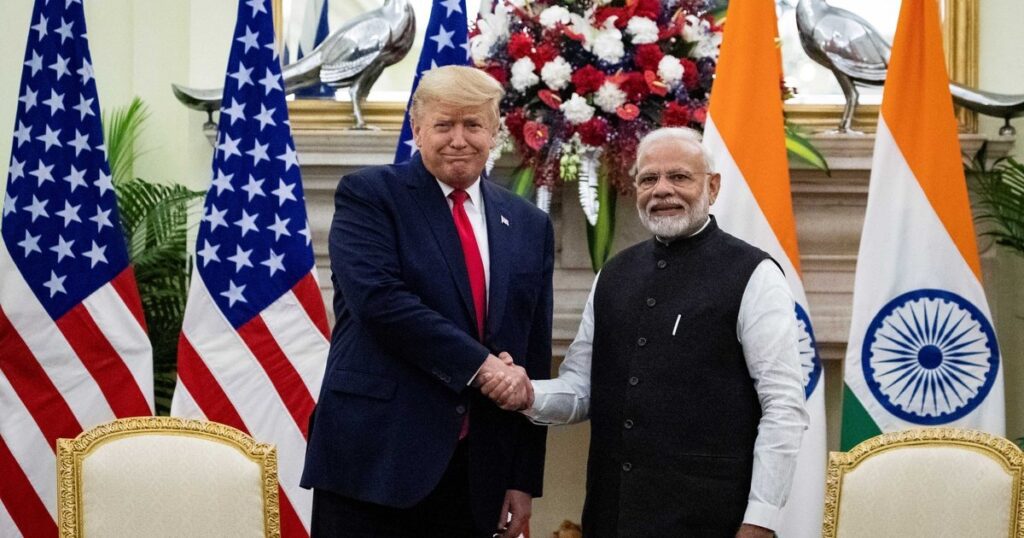During the first Trump administration, South Asia, particularly India, fared relatively well in its relations with Washington. President Trump appeared to develop a personal relationship with Indian Prime Minister Narendra Modi—the two leaders share somewhat similar transactional worldviews—and Trump hosted Modi at a large event in Texas. Pakistan did not enjoy the same warmth from the United States as India did in Trump’s first term, but Washington and Islamabad collaborated on the peace process in Afghanistan and addressed a range of other issues in the latter half of Trump’s term. Meanwhile, Bangladesh and Sri Lanka faced challenges balancing their ties with China against the Trump administration’s focus on India. The United States encouraged smaller states in the region to follow India’s lead by strengthening defense ties with Washington and reducing their reliance on China.
In the second term, India is preparing for more of the same. Trump is likely to continue his close personal links with Prime Minister Modi. Since Trump last left office, India has become a more prominent player in the Quadrilateral Security Dialogue and other U.S. Indo-Pacific regional arrangements. The series of China hawks Trump has appointed to many, if not all, of the senior national security positions, strongly suggest a very tough policy toward Beijing—one that would likely further strengthen ties with India.
More on:
The fact that India has continued to pursue ties with Russia since the Ukraine war, a sticking point in U.S.-India ties during the Biden administration, is unlikely to hinder relations between Washington and New Delhi under Trump, either. Trump occasionally criticized India over tariff issues, becoming particularly fixated on tariffs that affect the iconic Harley-Davidson motorcycle brand. Like many other countries, his proposed tariffs could impact India, but it remains unclear whether these proposals were merely campaign rhetoric.
However, Sri Lanka, Bangladesh, and Pakistan have reason to be more cautious about a second Trump term. A leftist government now runs Sri Lanka, which has had links to radical left-leaning organizations since the 1970s. This true outsider government has come into office with a mandate to upend Sri Lankan politics and its economy dramatically. While it might see some comfort in a second Trump administration’s shared concerns about Beijing, overall, the worldview of the new Sri Lankan government is miles from that of the new Trump administration. The Trump White House also tends to pay less attention to smaller states, and with so many ongoing world crises, Sri Lanka could easily get ignored.
Bangladesh, having recently overthrown its former government and striving to rebuild its society and political system, received strong support from the Biden administration. Conversely, Trump has condemned the killing of Hindus in Bangladesh’s communal violence and may seek to punish Bangladesh simply because its caretaker government was close to Biden. Trump’s pick for Director of National Intelligence, Tulsi Gabbard, has also harshly criticized the treatment of Hindus in Bangladesh.
As The Diplomat noted, the head of the caretaker government, Muhamad Yunus, speaking at a conference in Paris, compared the Trump re-election result to “a solar eclipse,” adding that “Trump’s win has hit us so hard that… I could hardly speak. I lost all strength.” Bangladesh, which depends on its export-oriented garment industry, could be badly damaged by even modest tariffs imposed by the second Trump administration.
As for Pakistan, Gabbard has harshly slammed the Pakistan army for its treatment of Hindus in the past and appears highly critical of the country. (To be sure, it remains unclear whether the Senate will confirm Gabbard.) The same hawkish appointees do not look favorably on China’s longstanding and close friend, Pakistan, either. Mike Waltz, the incoming national security advisor, was co-chair of the congressional India Caucus and is known to have strong and negative views about Pakistan’s role in regional security. Like its South Asian neighbors other than India, Pakistan appears headed for major challenges with Trump 2.0.
More on:

